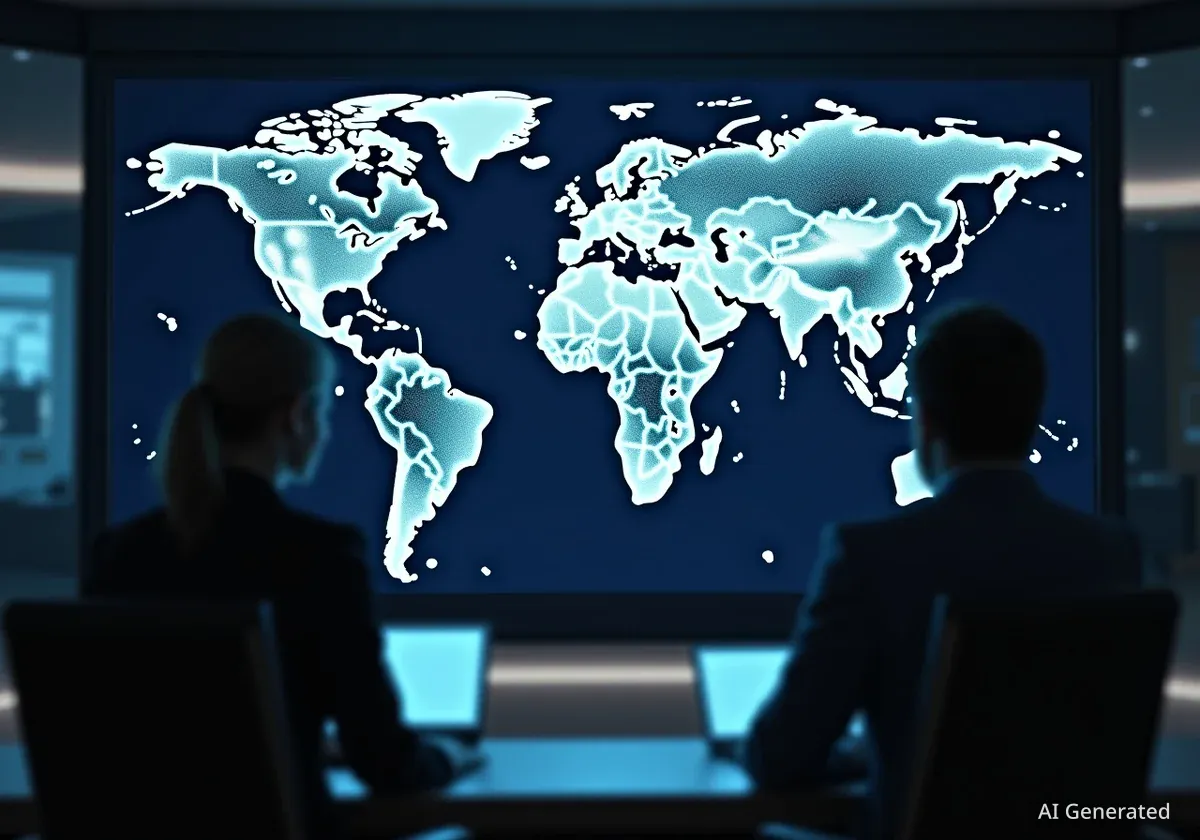In today's fast-paced world, access to accurate and timely information about global events is essential. News organizations work tirelessly to provide diverse perspectives and deep insights into international affairs, ensuring readers remain informed about the complex tapestry of our interconnected world.
Key Takeaways
- Journalists focus on delivering accurate and timely global news.
- News teams analyze a vast array of international events.
- Commitment to depth ensures a nuanced understanding for readers.
- Continuous monitoring provides round-the-clock updates.
The Core Mission of Global Journalism
Global journalism aims to keep the public informed about significant international developments. This mission involves a continuous effort to gather, verify, and present information from various parts of the world. News desks operate around the clock, processing a large volume of data and reports.
The process begins with a dedicated team of journalists. These professionals are responsible for monitoring global events. They analyze news from different regions, looking for stories that impact the international community. Their work ensures that important events do not go unnoticed.
Fact: News Cycle Speed
Modern news cycles operate 24/7, with digital platforms allowing for immediate updates. This speed requires constant vigilance from news desks to verify information rapidly.
Commitment to Accuracy and Depth
Accuracy is a fundamental principle in journalism. Every piece of information undergoes verification. This step is crucial to prevent the spread of misinformation. Journalists cross-reference sources and confirm facts before publication. This rigorous approach builds trust with readers.
Depth in reporting means going beyond surface-level details. It involves exploring the context, causes, and potential consequences of events. This allows readers to gain a more complete understanding of complex situations. For instance, a report on a political development might include historical background and economic implications.
"Our primary goal is to provide a nuanced understanding of international affairs. This requires not just reporting what happened, but explaining why it happened and what it means for the world," states a senior editor at a leading news organization.
The Role of Diverse Perspectives
Presenting diverse perspectives is another critical aspect of global news. Different regions and cultures may interpret events differently. A comprehensive news report includes these varied viewpoints. This helps readers form their own informed opinions rather than receiving a single narrative.
News teams often include journalists from various backgrounds. This diversity within the team helps in understanding and reporting on different cultural contexts. It also ensures that a wider range of issues is considered during news gathering.
The Process of News Gathering
News gathering is a complex process. It involves several stages, from initial identification of a story to its final publication. Journalists use a variety of tools and methods to collect information. These include interviews, official documents, and reports from on-the-ground correspondents.
Once information is collected, it moves to the editing phase. Editors review the content for accuracy, clarity, and adherence to journalistic standards. They also ensure the article flows well and is easy for readers to understand. This multi-step process helps maintain the quality of reporting.
Understanding Global Interconnections
Global events are often interconnected. A development in one country can have ripple effects across continents. For example, economic shifts in a major power can influence markets worldwide. News organizations strive to highlight these connections to show the broader impact of specific events.
Staying Informed in an Evolving World
The world is constantly changing. Political landscapes shift, economies evolve, and new social trends emerge. News organizations must adapt to these changes to remain relevant and effective. They invest in continuous training for their staff and update their technological capabilities.
According to recent industry reports, approximately 75% of readers prefer news sources that offer in-depth analysis over brief headlines. This preference underscores the importance of detailed reporting. It highlights the need for journalists to delve deeper into stories rather than just skimming the surface.
- Technology Integration: Newsrooms use advanced software for data analysis and content management.
- Correspondent Networks: A broad network of international correspondents provides direct access to local events.
- Ethical Guidelines: Strict ethical codes guide all reporting, ensuring fairness and impartiality.
Challenges in Global Reporting
Global reporting faces several challenges. These include language barriers, political sensitivities, and access restrictions in certain regions. Journalists often work in difficult conditions to bring important stories to light. They must navigate these obstacles while maintaining their commitment to factual reporting.
Despite these challenges, the dedication to informing the public remains strong. The goal is to provide a comprehensive view of global events, enabling readers to understand the forces shaping our world. This commitment helps foster a more informed global citizenry.
The Impact on Readers
Informed readers are better equipped to make decisions, whether personal or civic. Understanding international affairs allows individuals to grasp global trends and their potential local impact. It also promotes a broader sense of global awareness and empathy.
For example, knowing about trade agreements can help individuals understand changes in local markets. Similarly, reports on climate change initiatives in other countries can highlight global efforts and local responsibilities. This connection between global and local is a key outcome of effective international journalism.
The ongoing effort by news desks to deliver accurate, deep, and timely information helps bridge geographical and cultural divides. It empowers readers to participate in global conversations with a solid foundation of knowledge.





